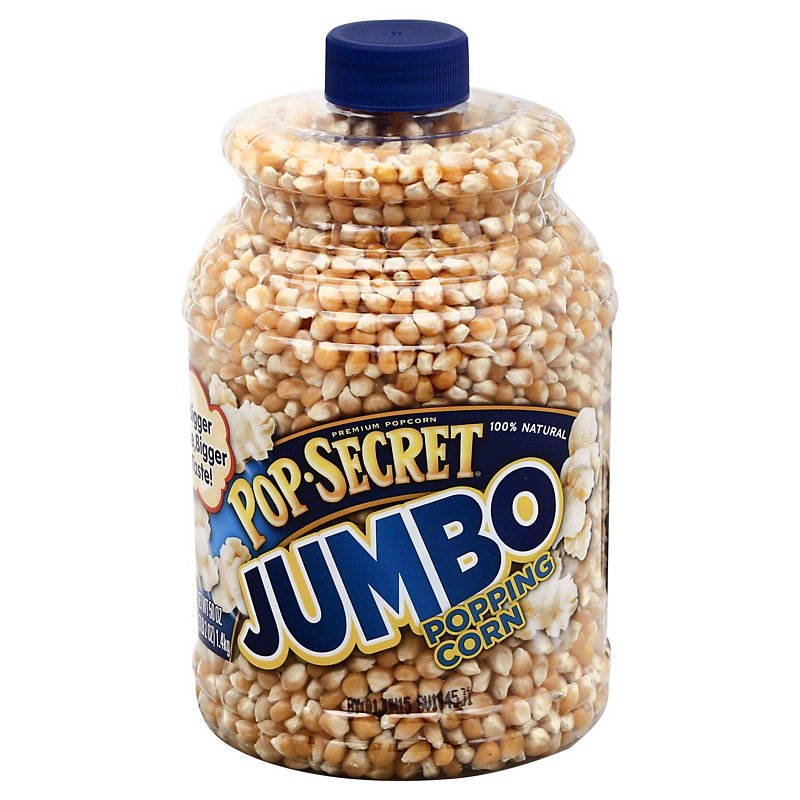
Introduction
Merv Griffin was a prominent American television host, producer, and media mogul. He was known for creating and hosting popular game shows such as Jeopardy! and Wheel of Fortune. However, his fans are still curious to know whether he is alive or not. In this article, we will explore the life of Merv Griffin and put an end to the rumors surrounding his death.
Who Was Merv Griffin?
Mervyn Edward Griffin Jr. was born on July 6, 1925, in San Mateo, California. He started his career in entertainment as a singer and later became a television host. His show, The Merv Griffin Show, was a popular daytime talk show that aired from 1962 to 1986.

Griffin was also a successful producer and created several hit game shows. Jeopardy! and Wheel of Fortune are still popular with audiences today. He was also a talented songwriter and composed the theme music for many of his shows.
Rumors of Merv Griffin's Death
There have been rumors circulating for years that Merv Griffin is still alive, despite reports of his death in 2007. The rumors started after a video surfaced on YouTube claiming to show Merv Griffin at a restaurant in Beverly Hills. However, the video was later debunked as a hoax.
Despite the hoax, the rumors continue to persist. Some people believe that Merv Griffin faked his own death and is living a secret life. Others speculate that he was cryogenically frozen after his death and will be brought back to life in the future.
The Truth About Merv Griffin's Death
So, what is the truth about Merv Griffin's death? Unfortunately, Merv Griffin passed away on August 12, 2007, at the age of 82. He died from prostate cancer in Los Angeles, California.

Despite the rumors, there is no evidence to suggest that Merv Griffin is still alive. His death was widely reported in the media and confirmed by his family and representatives.
Merv Griffin's Legacy
Although Merv Griffin may no longer be with us, his legacy lives on. He was a trailblazer in the entertainment industry and paved the way for many others. His contributions to television and game shows will always be remembered.

Jeopardy! and Wheel of Fortune are still popular with audiences today and have been adapted into many different languages. Merv Griffin's theme music for these shows is instantly recognizable and has become iconic.
Conclusion
In conclusion, Merv Griffin was a legendary figure in the entertainment industry. Although rumors have persisted for years that he is still alive, the truth is that he passed away in 2007. His legacy lives on through his contributions to television and game shows. We will always remember Merv Griffin as a visionary and a pioneer.
Related video of Is Merv Griffin Alive?
Martin Cooper is an American inventor and entrepreneur who is known as the father of the modern mobile phone. He is best known for inventing the first handheld cellular mobile phone in 1973 while he was working for Motorola. Since then, he has become a legendary figure in the telecommunications industry. But the question that many people have been asking is whether Martin Cooper is still alive in 2014.
Martin Cooper's Early Life and Career

Martin Cooper was born on December 26, 1928, in Chicago, Illinois. He graduated from the Illinois Institute of Technology with a degree in electrical engineering in 1950. After graduation, he worked for several companies, including Teletype Corporation and Motorola, where he made his mark in the telecommunications industry.
The Invention of the Mobile Phone

In 1973, Martin Cooper made history when he invented the first handheld cellular mobile phone. The phone, which weighed 2.5 pounds, was called the Motorola DynaTAC 8000X. It was the first mobile phone that could be carried around and used to make calls from anywhere. The invention revolutionized the telecommunications industry and paved the way for the development of modern smartphones.
Martin Cooper's Legacy
Martin Cooper's legacy in the telecommunications industry is undeniable. He has received numerous awards and honors for his contributions to the field. In 2013, he was inducted into the National Inventors Hall of Fame. He has also been awarded the IEEE Medal of Honor, the highest honor in electrical engineering, and the Prince of Asturias Award for Technical and Scientific Research.
Is Martin Cooper Still Alive?

As of 2014, Martin Cooper is still alive. He is 92 years old and lives in Del Mar, California, with his wife, Arlene Harris. Although he is retired, he still remains active in the telecommunications industry and is a sought-after speaker and consultant.
Martin Cooper's Views on the Future of Mobile Technology

Martin Cooper has always been a visionary and has been quoted as saying, "The future is not about better phones, it's about better applications." He believes that mobile technology will continue to evolve and that the focus will shift from the devices themselves to the applications that they can run. He also believes that mobile technology will play a key role in solving some of the world's most pressing problems, such as healthcare, education, and poverty.
Conclusion
In summary, Martin Cooper is still alive in 2014 and continues to be an influential figure in the telecommunications industry. His invention of the first handheld cellular mobile phone revolutionized the industry and paved the way for modern smartphones. He remains a visionary and believes that mobile technology will continue to play a key role in shaping the future of the world.
Related video of Is Martin Cooper Still Alive in 2014?

Introduction
With the rise of technology and the increasing use of email, many people have been wondering whether mail is still being delivered every day. This question has become particularly pertinent during the COVID-19 pandemic, where many businesses have closed down or are operating with reduced staff.
The Short Answer
The short answer is yes, mail is still being delivered every day. The United States Postal Service (USPS) is an essential service that has continued to operate throughout the pandemic. However, there have been some changes to the delivery schedule and procedures to ensure the safety of postal workers and customers.
Changes to Delivery Schedule

One of the changes that have been implemented is a reduction in the frequency of mail delivery. According to the USPS, some areas may only receive mail delivery on certain days of the week. However, this largely depends on the area and the volume of mail being processed.
In addition, the USPS has also suspended the guarantee on Priority Mail Express International services to many countries. This is due to the suspension of transportation availability and other factors related to COVID-19.
Changes to Procedures

To minimize the risk of transmission of COVID-19, the USPS has implemented several changes to their procedures. Postal workers are required to wear masks and gloves while handling mail, and are encouraged to practice social distancing wherever possible.
The USPS has also increased their cleaning and sanitizing efforts. Postal facilities are cleaned and disinfected regularly, and postal workers are encouraged to wash their hands frequently and use hand sanitizer.
Conclusion
In summary, mail is still being delivered every day, but there have been some changes to the delivery schedule and procedures. These changes have been implemented to ensure the safety of postal workers and customers during the COVID-19 pandemic. It is important to check with your local post office for any specific changes to delivery schedules in your area.
Related video of Is Mail Going Out Today?
Introduction
Lead paint is a type of paint that contains lead as one of its components. It was widely used in the past for its durability and ability to dry quickly. However, lead paint can be toxic, especially to children, and can cause serious health problems when ingested or inhaled. As a result, the use of lead paint has been banned in many countries. But is lead paint still used today?The Dangers of Lead Paint
Lead is a toxic metal that can be absorbed into the body through ingestion or inhalation. Lead poisoning can cause a range of health problems, including developmental delays, learning difficulties, and behavioral problems. Children are particularly vulnerable to lead poisoning, as their brains and nervous systems are still developing. Lead paint is especially dangerous when it chips or peels, as the lead particles can be easily ingested or inhaled.The History of Lead Paint
Lead paint has been used for thousands of years, dating back to ancient Rome and Greece. In the early 20th century, lead paint became widely used in the United States and other countries. It was used in homes, schools, and other buildings, as well as on toys, furniture, and other products. However, as the dangers of lead became more widely known, the use of lead paint began to decline.The Banning of Lead Paint
Many countries have banned the use of lead paint, including the United States, Canada, and the European Union. In the United States, lead paint was banned for residential use in 1978. This means that any home built before 1978 may contain lead paint. The use of lead paint in toys and other products has also been banned in many countries.Lead Paint in Developing Countries
While lead paint has been banned in many countries, it is still used in some developing countries. This is often due to a lack of regulations and enforcement, as well as a lack of awareness of the dangers of lead paint. Many products that are imported from these countries may contain lead paint, including toys and other children's products.The Risks of Lead Paint in Homes
If you live in a home that was built before 1978, there is a chance that it contains lead paint. Even if the paint is not peeling or chipping, it can still be a risk, especially if you have young children. Lead paint can be found on walls, windowsills, doors, and other surfaces. If you are concerned about lead paint in your home, you can have it tested by a professional.
What to Do if You Find Lead Paint
If you find lead paint in your home, it is important to take steps to protect yourself and your family. This may include covering the paint with a sealant, or having it removed by a professional. If you are pregnant or have young children, it is especially important to take precautions to avoid exposure to lead paint.Alternatives to Lead Paint
There are many alternatives to lead paint that are safer and more environmentally friendly. These include water-based paints, which are non-toxic and easy to clean up. There are also natural paints made from materials like clay, lime, and milk protein, which are non-toxic and biodegradable.
The Importance of Lead Paint Awareness
While the use of lead paint has declined in many countries, it is still a problem in some areas. It is important to raise awareness about the dangers of lead paint, and to encourage the use of safer alternatives. This can help to protect the health of children and adults, and to reduce the environmental impact of paint.Conclusion
In conclusion, lead paint is still used in some countries, particularly in developing countries. However, it has been banned in many countries due to its toxicity and health risks. If you live in a home built before 1978, it is important to be aware of the risks of lead paint, and to take steps to protect yourself and your family. By using safer alternatives and raising awareness about the dangers of lead paint, we can help to create a safer and healthier environment for everyone.Related video of Is Lead Paint Still Used?

Kosher salt is a type of coarse salt that is commonly used in cooking. It has larger crystals than regular table salt and is often preferred by chefs because of its texture and flavor. However, many people wonder if kosher salt is iodized like regular table salt. In this article, we will explore the answer to this question and provide you with some additional information about kosher salt.
What is Iodized Salt?

Iodized salt is regular table salt that has been fortified with iodine. Iodine is an essential mineral that is important for thyroid function and preventing iodine deficiency. Iodine deficiency can lead to a range of health problems, including goiter, hypothyroidism, and mental retardation in children.
Is Kosher Salt Iodized?

Kosher salt is not typically iodized. This is because kosher salt is made from the same salt as regular table salt, but it is processed differently. Kosher salt is usually made by compacting salt flakes together, which gives it its characteristic shape and texture.
While iodine can be added to kosher salt during the manufacturing process, it is not a common practice. Additionally, some people prefer to use uniodized salt for certain recipes because it can affect the taste of the dish. If you are concerned about your iodine intake, it is important to make sure you are getting enough iodine from other sources, such as seafood, dairy products, or iodine supplements.
Benefits of Kosher Salt

Kosher salt has several benefits over regular table salt. First, its larger crystals make it easier to handle and sprinkle over food. It also has a milder flavor than regular table salt, which can be beneficial for recipes that require a delicate balance of flavors.
Additionally, kosher salt is often preferred by chefs because it does not contain any additives, such as anti-caking agents, that can affect the taste of the dish. This makes it a popular choice for brining meat or seasoning vegetables.
How to Use Kosher Salt in Cooking

Kosher salt can be used in the same way as regular table salt, but it may require a slightly different measurement. Because kosher salt has larger crystals, it is less dense than regular table salt. This means that you may need to use more kosher salt to achieve the same level of saltiness in your dish.
When using kosher salt in cooking, it is important to sprinkle it evenly over the food. You can also use it to season meat or vegetables before cooking to enhance their flavor. Additionally, kosher salt is a popular choice for rimming cocktail glasses or sprinkling over desserts.
Conclusion
In conclusion, kosher salt is not typically iodized like regular table salt. While iodine is an important mineral for overall health, it is important to remember that there are other sources of iodine in the diet. Kosher salt has several benefits over regular table salt, including its texture and flavor, and can be used in a variety of dishes. Whether you choose to use kosher salt or regular table salt in your cooking, it is important to use it in moderation and pay attention to the overall sodium content of your diet.
Related video of Is Kosher Salt Iodized?
/https://www.thestar.com/content/dam/thestar/news/gta/2020/12/08/the-john-lennon-i-knew-/a1_lennon_dead.jpg)
The Death of a Legend
John Lennon, one of the most influential musicians of all time, was tragically shot and killed outside his New York City apartment on December 8, 1980. The news of his death shocked the world and left his fans grieving.

The Conspiracy Theories
However, since his death, there have been numerous conspiracy theories that suggest that John Lennon may not have actually died. Some believe that he faked his own death and went into hiding, while others think that he was murdered by the government or some other powerful entity.
One of the most popular theories is that John Lennon was killed by the CIA because of his activism and outspokenness against the Vietnam War. Some believe that the government saw him as a threat and wanted to silence him.
/https://www.thestar.com/content/dam/thestar/news/gta/2020/12/08/the-john-lennon-i-knew-/a1_lennon_dead.jpg)
The Evidence
Despite the many conspiracy theories, there is no concrete evidence to suggest that John Lennon is still alive. His death was widely reported at the time, and there were many witnesses to the shooting.
Furthermore, his wife Yoko Ono and his former bandmates have all publicly acknowledged his death and mourned his passing. The idea that he faked his own death seems unlikely, as it would have required a massive conspiracy involving many people.

The Legacy of John Lennon
Regardless of whether John Lennon is really dead or not, his legacy lives on. His music continues to inspire and influence people all over the world, and his message of peace and love is as relevant today as it was when he was alive.
John Lennon will always be remembered as a true legend and a voice for change. Whether he is alive or not, his impact on the world will never be forgotten.

Conclusion
In conclusion, while there are many conspiracy theories that suggest that John Lennon may not have actually died, there is no concrete evidence to support these claims. His death was widely reported at the time, and his loved ones have all confirmed that he is no longer with us.
Regardless of whether he is alive or not, the legacy of John Lennon will continue to inspire and influence generations to come.
Related video of Is John Lennon Really Dead?

The Taboo of Cousin Love
Loving someone from your own family can be a sensitive and controversial issue. In some cultures, cousin marriage is considered taboo, while in others, it is widely accepted.

According to a report by the BBC, cousin marriage is legal in around 20% of the world's population, while in the United States, it is legal in 25 states. However, despite its legality, cousin marriage remains a taboo subject in many communities.
The Genetics of Cousin Marriage
One of the main concerns about cousin marriage is the potential for genetic disorders in offspring. Studies have shown that children born to first cousins have a slightly higher risk of genetic disorders, such as birth defects and developmental disabilities, compared to children born to unrelated parents.
Despite this increased risk, the chance of having a child with a genetic disorder is still relatively low. In fact, the risk is only slightly higher than the risk of having a child with a genetic disorder in the general population.
The Legalities of Cousin Love

As previously mentioned, cousin marriage is legal in many parts of the world, including the United States. However, there are some restrictions in certain states and countries.
For example, in some states in the US, cousin marriage is only legal if both parties are over a certain age, while in others, it is illegal altogether. In some countries, such as China and Taiwan, cousin marriage is only legal if the couple obtains a special dispensation from the government.
The Cultural and Historical Context of Cousin Marriage

Cousin marriage has been practiced throughout history, and in some cultures, it is considered a preferred form of marriage.
For example, in many Middle Eastern and North African countries, cousin marriage is common and is seen as a way to keep family wealth and property within the family. In some cases, cousin marriage is also used to strengthen family ties and maintain family honor.
The Pros and Cons of Cousin Love
Like any type of relationship, there are both pros and cons to loving your cousin.
On the positive side, cousin marriage can strengthen family ties, as well as provide a sense of familiarity and comfort in a relationship. Additionally, in some cultures, cousin marriage is seen as a way to continue family traditions and honor.
However, there are also some potential negative consequences to cousin love. As previously mentioned, there is an increased risk of genetic disorders in offspring. Additionally, there may be social and cultural stigmas associated with cousin marriage, which can lead to ostracism and discrimination from others.
The Bottom Line

Ultimately, the decision to love your cousin is a personal one that should be based on your own beliefs, values, and cultural background.
If you are considering a relationship with your cousin, it is important to be aware of the potential risks and consequences, as well as any legal restrictions in your state or country.
Regardless of your decision, it is important to approach any relationship with honesty, respect, and open communication.
Related video of Is It Wrong To Love Your Cousin?

Introduction
Popcorn is a popular snack loved by people of all ages. It is a delicious treat that can be enjoyed while watching a movie or just as a snack. However, some people are concerned about the safety of eating popcorn kernels. In this article, we will explore whether it is safe to eat popcorn kernels or not.What are Popcorn Kernels?
Popcorn kernels are the seeds of the popcorn plant. They are hard and small in size. When heated, the moisture inside the kernel turns into steam, which causes the kernel to explode and turn into fluffy popcorn. The popped popcorn is then seasoned with salt, butter, or other flavors to make it more delicious.
Are Popcorn Kernels Safe to Eat?
Popcorn kernels are generally safe to eat, but they can pose a choking hazard if not properly prepared. It is not recommended to eat raw popcorn kernels as they are hard to digest and can cause digestive problems.How to Prepare Popcorn Kernels Safely?
To prepare popcorn kernels safely, it is important to follow the instructions on the package. Most brands recommend using a popcorn maker or stovetop pot with a lid to pop the kernels. It is not recommended to pop kernels in a microwave without a proper popcorn bag.
What are the Risks of Eating Popcorn Kernels?
Eating popcorn kernels can pose a risk of choking, especially for young children or elderly people. It is important to supervise children while they are eating popcorn and to avoid giving them un-popped kernels.Can Popcorn Kernels Cause Dental Problems?
Eating popcorn kernels can also cause dental problems such as cracked or chipped teeth. It is recommended to chew popcorn carefully and avoid biting down on hard kernels.
Can Popcorn Kernels Cause Digestive Problems?
Eating too many popcorn kernels can also cause digestive problems such as constipation or diarrhea. It is recommended to eat popcorn in moderation and to drink plenty of water to aid digestion.Popcorn Kernels and Allergies
Some people may be allergic to popcorn or popcorn kernels. Symptoms of an allergic reaction can include hives, swelling, and difficulty breathing. If you experience any of these symptoms after eating popcorn, seek medical attention immediately.
Conclusion
In conclusion, popcorn kernels are generally safe to eat when properly prepared. However, they can pose a choking hazard and may cause dental or digestive problems if consumed in excess. It is important to supervise children while they are eating popcorn and to chew carefully to avoid any problems. If you experience any adverse reactions after eating popcorn, seek medical attention immediately.Related video of Is It Safe To Eat Popcorn Kernels?

Boiling water is a common practice in our daily lives. We boil water for various reasons, such as making tea, coffee, or cooking food. Sometimes, we may forget to use the hot water immediately after boiling it, and we wonder if it's okay to re-boil the water. In this article, we will discuss whether it's safe to boil water twice.
What Happens When You Boil Water?

When you heat water, it reaches its boiling point at 100°C/212°F. At this temperature, water starts to evaporate and turns into steam. The heat energy breaks the hydrogen bonds that hold the water molecules together, and they start to move around more freely. As a result, the water molecules move faster and become less dense, causing the water to boil.
Can You Boil Water Twice?

It is safe to re-boil water that has been previously boiled. However, it's important to note that re-boiling water can concentrate some of the chemicals and minerals present in the water. If you're using tap water, this can mean a higher concentration of chlorine, fluoride, and other substances.
Moreover, re-boiling water can change its taste and smell. The water may taste flat or have a slightly metallic taste due to the concentration of minerals. If you're using the water for cooking or making tea, this can affect the final taste of the dish.
Is It Safe To Drink Re-Boiled Water?

While re-boiling water is safe, it's important to note that some chemicals and minerals present in the water can become more concentrated after boiling. For instance, nitrates, which are present in tap water, can turn into nitrites, which are harmful to health, if the water is boiled for too long or at a high temperature.
Additionally, if the water is boiled in a container that is not properly cleaned, bacteria can grow in the water, making it unsafe to drink. Therefore, it's important to ensure that the container is clean before re-boiling water.
When Should You Not Re-Boil Water?

There are some cases when you should avoid re-boiling water. For example, if the water has been left at room temperature for too long, it can become contaminated with bacteria or other microorganisms. In this case, it's best to discard the water and use fresh water for boiling.
Additionally, if the water has been boiled for too long, it can lose its oxygen content and become flat. This can affect the taste and quality of the water. Therefore, it's best to use fresh water for boiling if you need to make tea or coffee or if you're cooking food that requires water.
Conclusion

In conclusion, re-boiling water is safe, but it can concentrate some of the chemicals and minerals present in the water. If you're using tap water, this can mean a higher concentration of chlorine, fluoride, and other substances. Additionally, re-boiling water can change its taste and smell, affecting the final taste of the dish. Therefore, it's best to use fresh water for boiling if possible.
Meta Description: Re-boiling water is safe, but it can concentrate some of the chemicals and minerals present in the water. If you're using tap water, this can mean a higher concentration of chlorine, fluoride, and other substances.
Meta Keywords: re-boiling water, boiling water twice, tap water, chlorine, fluoride.
Related video of Is It Ok To Boil Water Twice?

When it comes to relationships, there are a lot of factors that come into play. One of these factors is the level of kinship between two people. In some cultures, marrying a relative is not uncommon. However, in many societies, it is considered taboo. One question that often arises is whether it is legal to marry your second cousin. Let's take a closer look at this issue.
What is a Second Cousin?

A second cousin is someone who shares a great-grandparent with you. In other words, your grandparents are siblings with the other person's grandparents. This means that you and your second cousin share a common ancestor, but you are not as closely related as you would be with a first cousin.
Is it Legal to Marry Your Second Cousin?
The answer to this question varies depending on where you live. In many countries, including the United States, Canada, and the United Kingdom, it is legal to marry your second cousin. However, in some countries, such as China, Taiwan, and North Korea, it is illegal to marry a second cousin.
It is important to note that marrying a second cousin is not the same as marrying a close relative, such as a sibling or first cousin. In these cases, there is a much higher risk of genetic disorders in any offspring. With second cousins, the risk is much lower.
Why Marry Your Second Cousin?

There are many reasons why someone might choose to marry their second cousin. For some people, it may be a matter of cultural or religious tradition. For others, it may be a matter of convenience or familiarity. In some cases, people simply fall in love with someone who happens to be their second cousin.
It is important to remember that marrying your second cousin is a personal choice. While some people may find it taboo, others may not have any issues with it.
Conclusion
In many societies, marrying a relative is considered taboo. However, when it comes to marrying your second cousin, the answer is not so clear-cut. In many countries, it is legal to marry your second cousin. While some people may find it taboo, others may choose to marry their second cousin for a variety of reasons. Ultimately, it is up to each individual to decide whether marrying their second cousin is the right choice for them.